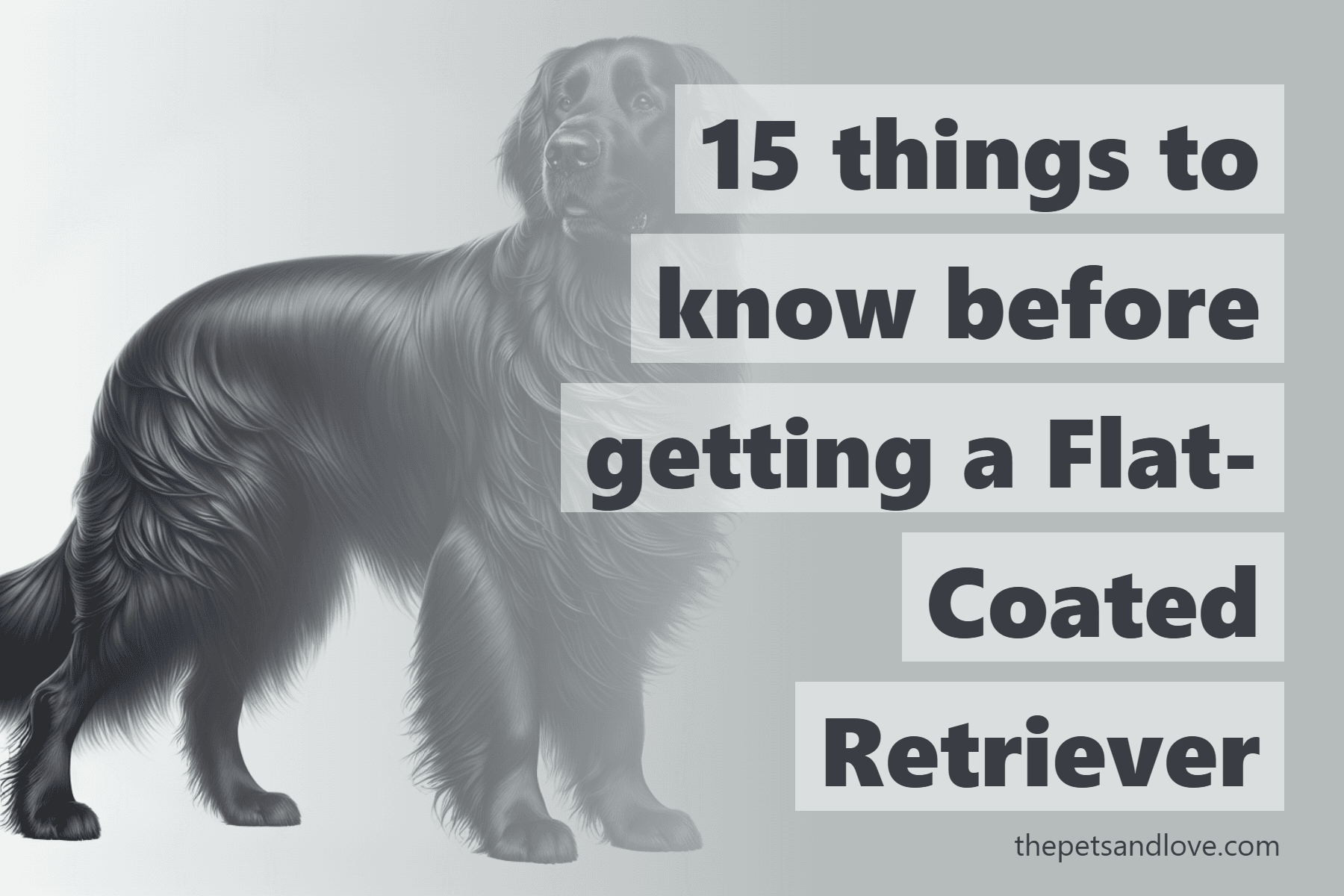15 things to know before getting a Flat-Coated Retriever

Thinking about bringing home a Flat-Coated Retriever? We’ve had the joy of knowing a few Flat-Coats over the years, and let me tell you, they’re sunshine in dog form — but they’re also not for everyone. Here’s what you really need to know before you fall for those shiny coats and goofy grins.
Flat-Coats: The Forever Puppies
Flat-Coated Retrievers are often called the “Peter Pan” of dogs — they just don’t grow up. Even into their older years, they keep that playful, mischievous spark. It’s part of their charm, but it also means you’ll be dealing with puppy energy well past the usual age. If you're hoping for a calm, low-key adult dog, this probably isn’t your breed.
Happy, Goofy, and Always Up for Fun
One of the things we love most about Flat-Coats is how genuinely happy they are. They’re social butterflies who want to be part of everything you do — whether it's hiking, swimming, or just hanging out on the couch (after a long run, of course). They’ve got a silly streak too. Many will grab the nearest object just to carry it around proudly — socks, toys, you name it. Just don’t expect them not to prank you now and then!
Exercise: Non-Negotiable
Flat-Coats are high-energy dogs. They need a solid 90 minutes of exercise a day — and not just a stroll around the block. Think swimming (they love water), fetch, long hikes, or dog sports like agility or flyball. Puppies need less — about 20 minutes — to protect their growing joints. If you’re active and love the outdoors, this breed will be your perfect sidekick.
Not Apartment Dogs
These dogs do best in homes with space to run. They’re not ideal for apartment living — not just because of their size, but because they need both physical and mental stimulation. A bored Flat-Coat is a destructive Flat-Coat.
Friendly With Kids and Pets — With a Caveat
Flat-Coats are sweet with older kids and generally good with other pets, especially if raised with them. But their enthusiasm can be a lot for toddlers or frail adults. Their wagging tails alone can knock things (or people) over! Always supervise interactions with young children, and teach kids how to respect a dog’s space.
Super Smart, But Easily Distracted
Training a Flat-Coat can be both rewarding and hilarious. They’re smart and eager to please, but also big goofballs who love a good laugh — even if it means ignoring your commands for a bit of fun. Keep training sessions upbeat and use lots of positive reinforcement. Harsh methods just don’t work with these sensitive souls.
Grooming and Care
Flat-Coats have beautiful, feathered coats that shed lightly year-round and more heavily during seasonal changes. Weekly brushing is a must (daily is better), and you’ll want to keep their ears clean, nails trimmed, and teeth brushed regularly. After a swim session, give them a quick rinse or bath — especially if it’s a chlorinated pool.
Health and Lifespan
This breed is generally healthy, but they’re prone to some genetic issues like cancer (unfortunately common in the breed), hip and elbow dysplasia, and some eye conditions. Their average lifespan is around 8–10 years, though some live longer with good care. If you’re considering getting one, choose a reputable breeder who does health testing.
Separation Anxiety is Real
Flat-Coats don’t like being alone. They thrive on companionship and can become anxious or destructive if left alone for too long. If you work long hours and no one else is home, this breed may not be the best fit for your lifestyle.
Poop-Eating? Yep, It Happens
It’s gross, but some Flat-Coats develop a habit of eating poop (their own or others'). The best way to prevent this is to clean up right away and reinforce “leave it” during training. It’s not uncommon, but it can be managed with consistency.
Food and Nutrition
Feed your Flat-Coat a high-quality diet suited to active or large-breed dogs. How much they need depends on age, size, and activity level — but generally, adult Flat-Coats eat about 3½ cups of food daily, split into two meals. Always talk to your vet about the best diet for your individual dog.
They Shine in Dog Sports
Whether it’s obedience, agility, dock diving, or therapy work, Flat-Coats are natural athletes and love having a job. If you’re into dog sports or just want a dog who can keep up with your hobbies, this breed is a fantastic partner.
Bottom line? Flat-Coated Retrievers are sweet, silly, and full of life. They’re not low-maintenance, but if you’ve got the time and energy to keep up, they’ll return the favor tenfold with love, loyalty, and laughter. Just be ready for muddy paws, a little chaos, and a dog who truly believes life is one big, wet adventure.
If that sounds like your kind of dog, the Flat-Coat might just be your perfect match.
Take the Quiz
Is a Flat-Coated Retriever Right for You?
The Flat-Coated Retriever is known for its friendly and optimistic nature, making it a great family companion. Discover if this joyful and energetic breed is the perfect match for your lifestyle by taking our quiz! Answer all questions below to discover your compatibility score and get personalized insights.
Question #1: What is the main reason you want a dog?
Question #2: How active is your lifestyle?
Question #3: How much time can you dedicate to your dog daily?
Question #4: What best describes your home environment?
Question #5: What size dog do you prefer?
Question #6: What personality traits do you want in your dog?
Question #7: How much grooming can you handle?
Question #8: Who else lives with the dog?
Question #9: Is this your first dog?
Please answer all 9 questions to see your results
